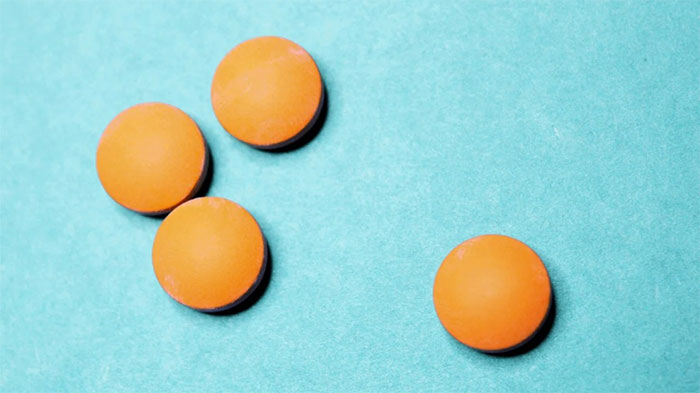If you have erectile dysfunction (ED) and do not want to take Cialis, don’t worry because there are other options.
What are these options, and which one is best for you? In this article, we will discuss different treatments for ED, such as medication, therapy, and lifestyle changes, that could be used instead of Cialis. We will provide you with information on each alternative and how they can help you to make an informed decision on which would be best for you.
Medication Alternatives
When it comes to treating ED, Cialis is a common medication, but there are other options, too. Two well-known alternatives are Viagra and Levitra.
Other oral medications for ED (like Viagra and Levitra)
Viagra and Levitra are similar to Cialis. They work by relaxing muscles and increasing blood flow to the penis, helping get and keep an erection.
Viagra is usually taken 30 minutes to an hour before sex and can last up to four hours. Levitra is taken around 60 minutes before sex and can last up to five hours. Remember, these medications won’t work without sexual stimulation.
How effective they are and possible side effects
All three medications are effective for ED, with success rates of around 60% to 80%. However, it can vary from person to person, and one medication may work better for someone than another.
Side effects may include headaches, nausea, redness or warmth in the face, stuffy or runny nose, and back pain. In rare cases, they can cause more serious problems like low blood pressure or vision problems.
Natural Remedies and Supplements
Many people use natural remedies and supplements to help with ED. Two examples are L-arginine and ginseng.
L-arginine is an amino acid that helps the body make a chemical called nitric oxide. Nitric oxide relaxes blood vessels and improves blood flow. Ginseng is an herb that has been used in traditional medicine for a long time and is thought to have properties that can help with sexual performance.
Potential benefits and limitations of natural alternatives
Natural alternatives like L-arginine and ginseng may have some benefits for ED. They are usually safe to use without a prescription. They are also affordable and easy to get.
But, it’s important to know that not a lot of evidence shows how well these natural remedies work. Some studies have shown positive results, but more research is needed to understand their benefits and how they work.
Also, natural remedies may not work the same for everyone. Each person is different, so the effects may not be as strong or quick as with prescription medications.
Caution about potential interactions with other medications
It’s very important to be careful when using natural remedies and supplements for ED. They can interact with other medications or health conditions you may have. For example, L-arginine might not be safe to use if you take medicine for high blood pressure. Ginseng might not be safe if you take blood thinners.
That’s why it’s always recommended to talk to a healthcare provider before using natural remedies or supplements for ED. They can review your health and any other medications you are taking to ensure it’s safe for you. They can also guide you on how to use them properly and effectively.
Remember, natural remedies are not a replacement for medical advice and treatment. They can be used as extra help, but it’s important to work with a healthcare professional to make sure you are managing your ED safely and effectively.
Lifestyle Changes
Making some changes to your lifestyle can help improve symptoms of ED. Two important changes are exercising and eating a healthy diet.
Exercise
Regular exercise can help improve blood flow and promote good heart health, which is important for a healthy sex life. Activities like brisk walking, swimming, or cycling can also reduce the chance of conditions that cause ED, like being overweight or having high blood pressure.
Healthy diet
Eating a healthy diet that includes many fruits, vegetables, whole grains, lean proteins, and healthy fats can also help ED. Some nutrients found in foods like berries, nuts, fish, and olive oil can support good blood flow and make sex better.
The importance of managing stress and staying healthy
Stress and how you feel mentally can affect your sexual health. Feeling very stressed, anxious, or depressed can cause ED. You can manage stress by trying meditation, deep breathing exercises, or doing things you enjoy that help you relax.
It’s also important to take care of yourself overall. Getting enough sleep, staying healthy, and not drinking too much alcohol or smoking are all important in managing ED. If you have other health problems like diabetes or high blood pressure, it’s important to take care of them because they can cause ED.
Understanding that lifestyle changes take time to make a difference
It’s good to know that lifestyle changes won’t fix ED immediately. It takes time and consistency for these changes to have a positive effect. It might take a few weeks or even months to see improvements in how well you can get an erection.
But don’t worry! Making these changes can have long-term benefits, not just for ED but also for your overall health and well-being.
Conclusion
In conclusion, if you want other options besides Cialis for erectile dysfunction (ED), there are a few choices. Some commonly prescribed drugs for ED are Viagra, Levitra.
You can also consider natural remedies and lifestyle changes as alternatives to Cialis. Some natural remedies that might help with ED symptoms include supplements like L-arginine and ginseng.
Remember, focusing on your overall health and well-being is important when looking for alternatives to Cialis. Making lifestyle changes like exercising regularly, eating a healthy diet, managing stress, and taking care of any underlying health issues can also significantly improve ED symptoms.
